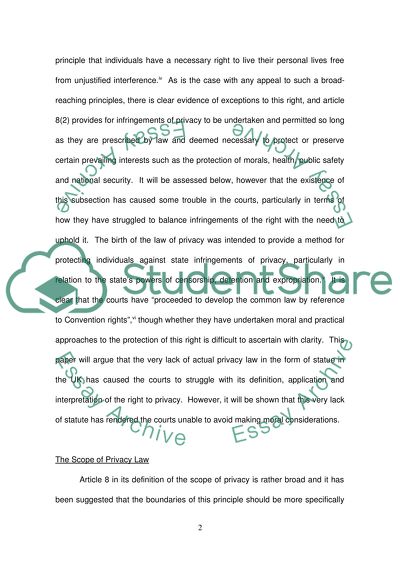Cite this document
(“Privacy Law: Practical and Moral Essay Example | Topics and Well Written Essays - 2000 words”, n.d.)
Retrieved from https://studentshare.org/law/1439282--cases-concerned-with-claims-of-infringement-of
Retrieved from https://studentshare.org/law/1439282--cases-concerned-with-claims-of-infringement-of
(Privacy Law: Practical and Moral Essay Example | Topics and Well Written Essays - 2000 Words)
https://studentshare.org/law/1439282--cases-concerned-with-claims-of-infringement-of.
https://studentshare.org/law/1439282--cases-concerned-with-claims-of-infringement-of.
“Privacy Law: Practical and Moral Essay Example | Topics and Well Written Essays - 2000 Words”, n.d. https://studentshare.org/law/1439282--cases-concerned-with-claims-of-infringement-of.


